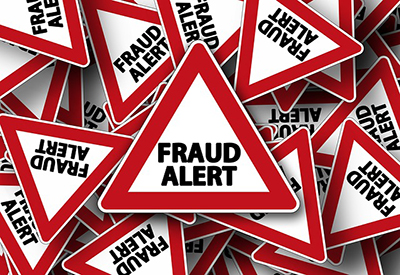Electrical Product Not Meeting Canadian Safety Standards — What To Do?

April 13 2016
Occasionally an organization or private individual becomes aware of a consumer or commercial product that appears to be unsafe, or does not appear to be a legitimate product properly certified for its intended purpose. For example, one indicator may be the labelling has spelling mistakes, the marks or logos on the product don’t appear to be correct, or some other feature appears to be abnormal. All electrical products, for example, must be tested and certified by a Standards Council of Canada (SCC) accredited certification body (CB) against a recognized Canadian product standard. The product can then be safely installed according to the rules of the relevant jurisdictional adopted CSA Canadian Electrical Code.
When you suspect there may be a potential safety concern with an electrical product, it should be reported. There are several organizations that should be informed:
• CB
• provincial authority
• SCC
• Health Canada for consumer products
The following are examples of what should be reported:
• fire, shock or other personal injury or property damage allegedly caused by a certified product
• misuse, misrepresentation or unauthorized use of a certification mark
• noncompliance with Canadian safety standards for that product
• inappropriate or unauthorized reference(s) to product certification on packaging, web sites, brochures or ads
For any of these examples, the certification body whose mark appears on or is associated with a suspect product, should be notified. A directory of all Canadian Accredited Product, Process and Service CBs and Inspection Bodies can be found on the SCC website: http://www.scc.ca/en/accreditation/product-process-and-service-certification/directory-of-accredited-clients.
The three most commonly used CBs in the electrical market are as follows:
• CSA Market Surveillance Report Form: http://www.csagroup.org/about/certification-marks-labels/global-brand-protection/submit-an-incident-report/. Additional information: http://www.csagroup.org/about/certification-marks-labels/global-brand-protection/
• UL Market Surveillance Report Form: http://ul.com/customer-resources/market-surveillance-department/market-surveillance/. Additional information: http://ul.com/customer-resources/market-surveillance-department/. Their email is: Market.Surveillance@ul.com
• Intertek Market Surveillance Report Form: http://www.intertek.com/inspector-center/product-complaint/. Additional information: http://www.intertek.com/inspector-center/. Products Testing, Inspection & Certification: 1 800 967 5352.
What does the certification body do with the market surveillance reports?
The relevant CB opens product incident reports to investigate concerns about the certified product sent to them by consumers, manufacturers, distributors, retailers and authorities having jurisdiction (AHJ). When a product incident report is opened, the CB verifies the concern, works to determine the root cause and takes appropriate action to resolve the concern.
Those reporting a product incident will receive an acknowledgment that the CB has received their submission. Investigations can take a few days to several months to complete, depending upon their complexity. Unfortunately, when their investigation is complete, they may not be able to share their conclusions with you, particularly where they have a contracted confidential agreement with the manufacturer or importer. Should the product in question be found unsafe, the CB will work with the manufacturer/importer to establish a product recall.
• A copy of your complaint letter should also be directed to the relevant regulatory authority where that product was found. All the relevant Canadian authorities can be found on the Regulatory Authority Advisory Bodies (RAAB) SCC page. Each CB is obligated under their accreditation to report field incidents annually to their RAAB: http://www.scc.ca/en/accreditation/product-process-and-service-certification/regulatory-advisory-councils.
For our sector, the Canadian Advisory Council on Electrical Safety (CACES): Normand Breton, CACES Executive Secretary: normand.breton@electricalsafety.on.ca.
• Another copy of your complaint letter should be sent to SCC. The contact person there is Chantal Guay, Vice-President, Accreditation Services cguay@scc.ca. SCC also verifies the CB’s reported incident follow-up record during the accreditation regular audits.
• In addition, should the suspect product also be a consumer product, it should be reported to Health Canada – Consumer Product Safety Incident Reporting: http://www.hc-sc.gc.ca/cps-spc/advisories-avis/incident/index-eng.php
For additional information, please contact: Bill Bryans, VP, Technical Services – Electrical, Electro-Federation Canada; bbryans@electrofed.com, 647-260-3089.
This article was first published as an Electro-Federation Canada Technical Services EFC Member Update.





![Guide to the Canadian Electrical Code, Part 1[i], 26th Edition– A Road Map: Section 56](https://electricalindustry.ca/wp-content/uploads/2022/11/Guide-CE-Code-2-768x432.png)




![Guide to the Canadian Electrical Code, Part 1[i], 26th Edition– A Road Map: Section 56](https://electricalindustry.ca/wp-content/uploads/2022/11/Guide-CE-Code-2.png)



